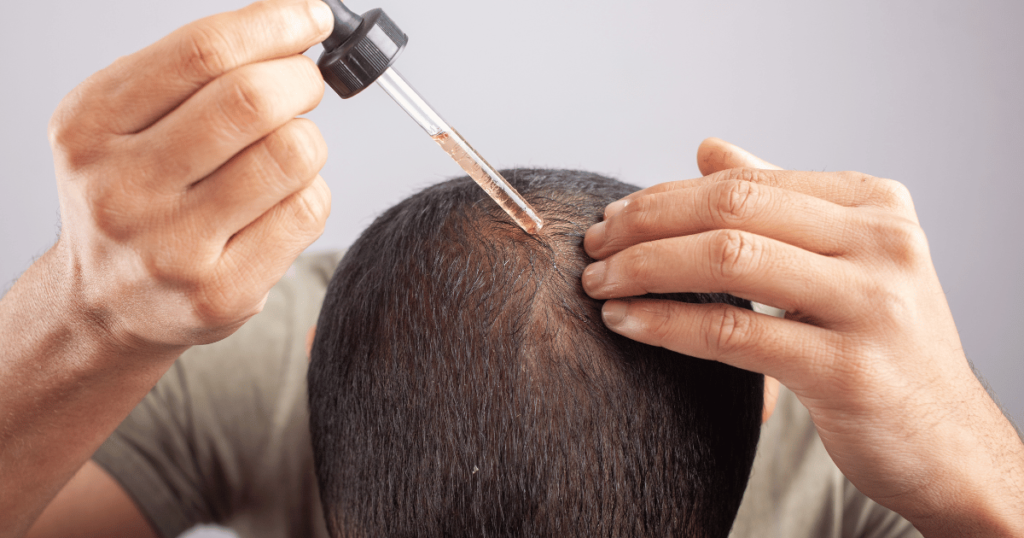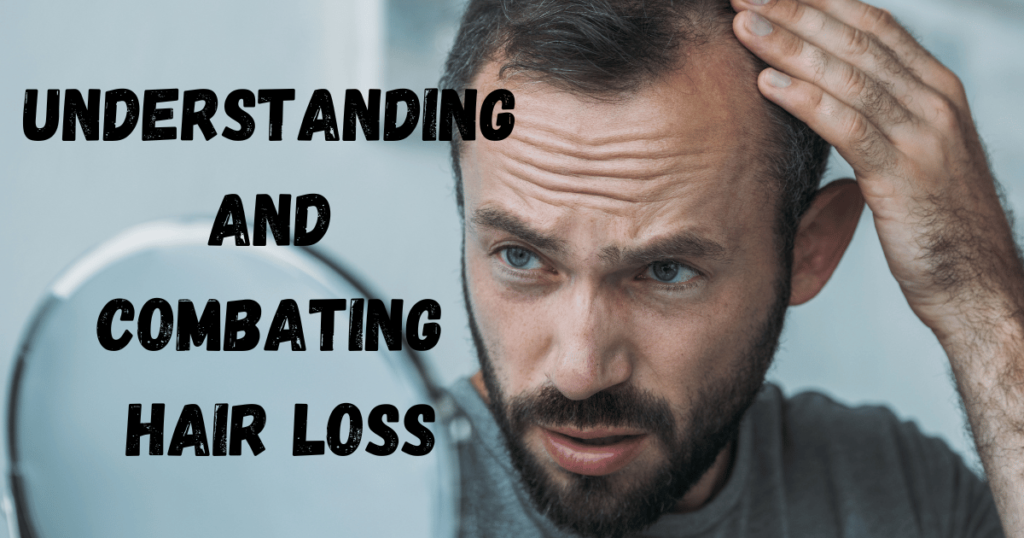The Ultimate Guide to Understanding and Combating Hair Loss: Expert Tips and Solutions

Introduction
Hair loss is a common concern affecting millions of people worldwide. As we step into 2024, advancements in science and holistic approaches offer new hope. This guide aims to provide you with a deeper understanding of hair loss and effective strategies to manage it.
Understanding Hair Loss
Types of Hair Loss
- Androgenetic Alopecia: Commonly known as male or female pattern baldness, it’s linked to genetics and hormones.
- Alopecia Areata: An autoimmune disorder causing patchy hair loss.
- Telogen Effluvium: A temporary phase of hair shedding often associated with stress, illness, or hormonal changes.
- Traction Alopecia: Hair loss caused by pulling hair too tightly in hairstyles.
Causes of Hair Loss
- Genetic predisposition
- Hormonal imbalances (like thyroid issues, menopause)
- Nutritional deficiencies
- Stress and mental health issues
- Medical conditions and medications
- Over-styling and use of harsh hair products
Combatting Hair Loss in 2024
1. Advanced Treatments

- Minoxidil and Finasteride: FDA-approved medications for pattern baldness.
- Low-Level Laser Therapy (LLLT): Non-invasive treatment to stimulate hair follicles.
- Platelet-Rich Plasma (PRP) Therapy: Involves injecting your own plasma into the scalp to encourage hair growth.
- Hair Transplant Surgery: Surgical options like FUT and FUE have become more advanced and less invasive.
2.Nutritional Approach

Key Nutrients for Hair Health
- Protein: Hair is primarily made of protein, especially keratin. Include lean meats, fish, beans, and legumes in your diet.
- Iron: Iron deficiency can lead to hair loss. Good sources include spinach, lentils, and fortified cereals.
- Vitamins:
- Biotin (Vitamin B7): Supports hair growth. Found in eggs, nuts, and whole grains.
- Vitamin D: Low levels linked to hair loss. Include fatty fish, fortified foods, and sunlight exposure.
- Vitamin E: Antioxidant that can improve scalp health. Avocados and almonds are good sources.
- Zinc: Essential for hair tissue growth. Found in oysters, beef, and pumpkin seeds.
- Omega-3 Fatty Acids: Help maintain healthy hair. Sources include salmon, flaxseeds, and walnuts.
Dietary Tips
- Stay Hydrated: Water is crucial for maintaining healthy hair.
- Balanced Meals: Ensure a balanced diet with a mix of all essential nutrients.
- Avoid Crash Diets: Sudden weight loss can lead to hair loss.
3.Natural Remedies

Herbal Treatments and Oils
- Rosemary Oil: Known to stimulate hair growth, comparable to minoxidil.
- Peppermint Oil: Increases circulation, potentially promoting hair growth.
- Aloe Vera: Soothes the scalp and conditions hair.
- Onion Juice: Rich in sulfur, which helps in hair regrowth.
DIY Hair Masks
- Egg Mask: Eggs are rich in protein and biotin. Mix with olive oil for a nourishing scalp treatment.
- Avocado Mask: Combines the goodness of vitamin E and omega-3 fatty acids.
4.Lifestyle Changes

Stress Management
- Regular Exercise: Enhances blood flow, including to the scalp.
- Meditation and Yoga: Effective in reducing stress, a known trigger for hair loss.
- Adequate Sleep: Essential for overall health, including hair.
Hair Care Routine
- Gentle Styling: Avoid tight hairstyles and heat styling tools.
- Natural Hair Products: Choose sulfate-free shampoos and conditioners.
- Regular Trimming: Helps prevent split ends.
Environmental Factors
- Protect Hair from Sun and Pollution: Wear a hat or use leave-in products with UV protection.
- Avoid Chlorinated Water: Wear a swimming cap while swimming.
Avoid Harmful Habits
- Smoking: Reduces blood flow to the scalp, contributing to hair thinning.
- Excessive Alcohol Consumption: Can lead to dehydration and hair fragility.
5. Emerging Technologies

- Gene Editing: Research in gene therapy shows promise for future treatments.
- Stem Cell Therapy: A cutting-edge approach with potential to regenerate hair growth.
Expert Tips
- Consult a Dermatologist: Early diagnosis and treatment are crucial.
- Customized Approach: Tailor your treatment plan based on the type of hair loss.
- Be Patient: Most treatments take time to show results.
- Stay Informed: Keep up with the latest research and advancements in hair loss treatments.
Conclusion
Understanding and tackling hair loss requires a multifaceted approach. In 2024, we have more options than ever, from advanced medical treatments to natural remedies and lifestyle changes. Remember, the key to success is finding the right combination that works for you and being consistent with it.
Stay hopeful and take action. Your journey to healthier hair starts today!
check out this > Your Way to Better Health In 6 Tips About Nuts : How Nuts Enhance Your Health and Wellbeing



